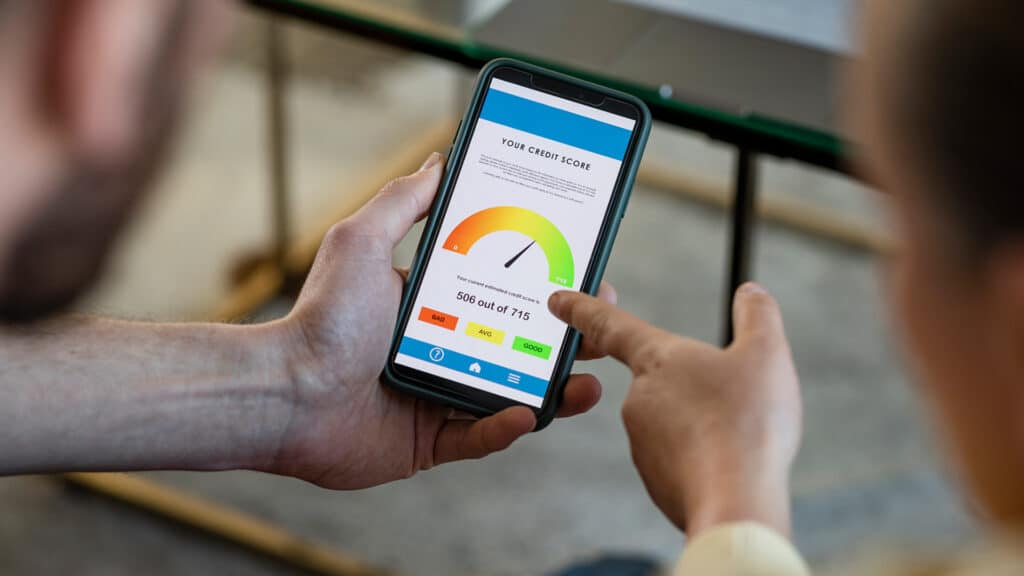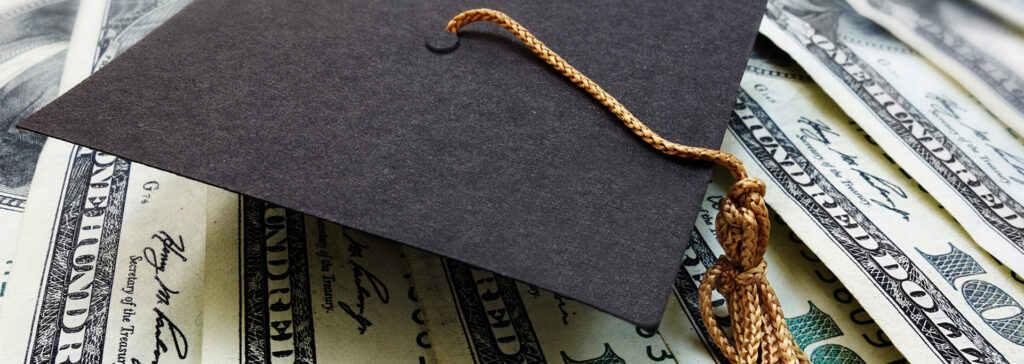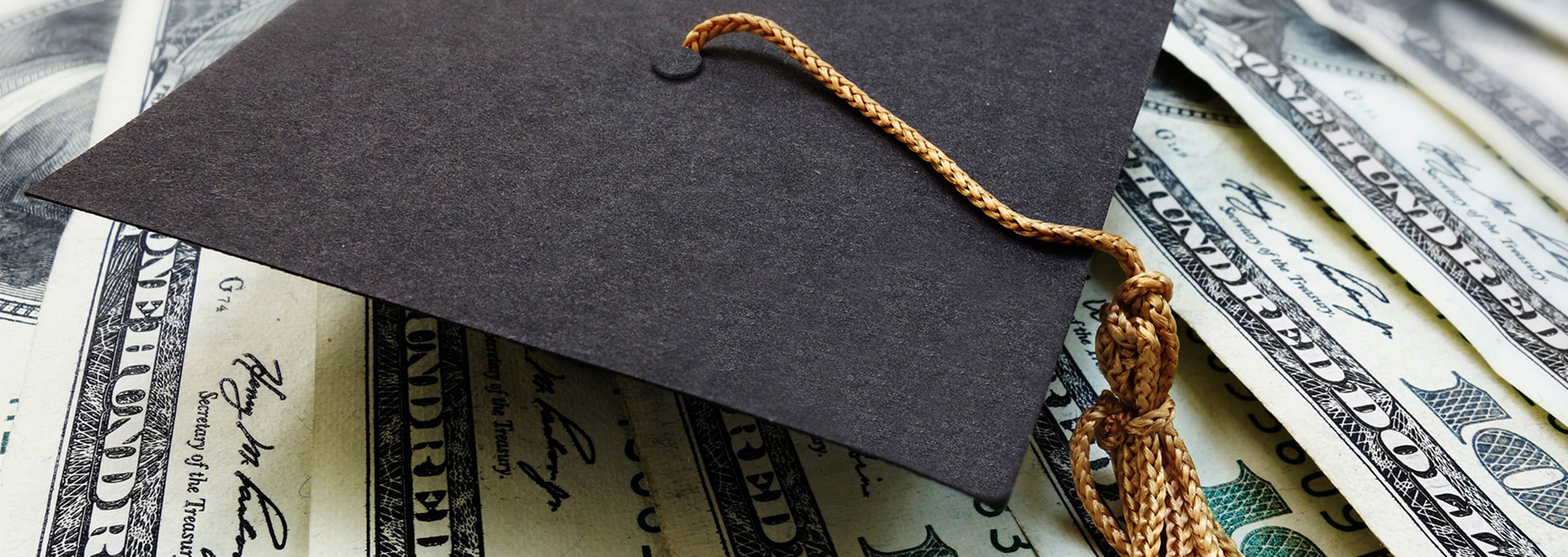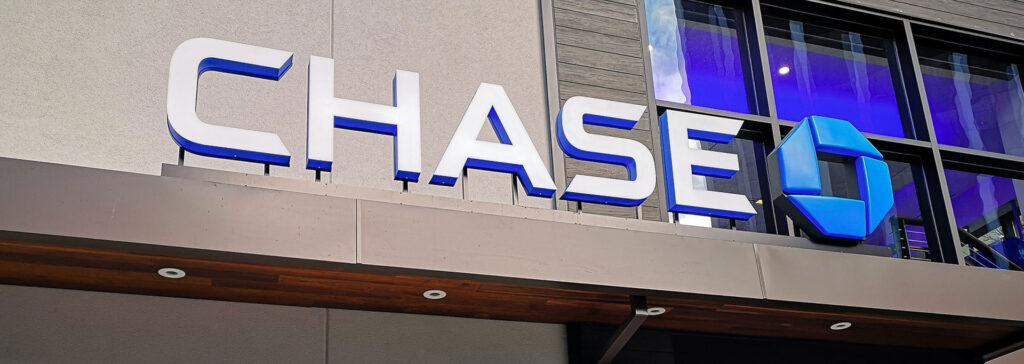Most products on this page are from partners who may compensate us. This may influence which products we write about and where and how they appear on the page. However, opinions expressed here are the author's alone, not those of any bank, credit card issuer, airline or hotel chain. This page may include information about American Express products currently unavailable on Slickdeals. American Express is not a partner of Slickdeals.
Many of us understand the struggle of paying back student loans that we've taken out for our college expenses. If you're one of the millions of people with student loan debt, you should be aware of how student loans can affect your credit score — both in good and bad ways.
How your credit is affected primarily depends on how diligent you are with your monthly student loan payments. Responsible payments can help build your credit, while late payments and other missteps can hurt it. Keep reading to learn more about the different ways that student loans can affect your credit score.
How Paying Off Student Loans Can Improve Your Credit Score
Like with any loan, being a responsible student loan borrower can potentially boost your credit score, and the same applies to student loans.
How can student loans be used to help improve your credit?
1. Build credit through on-time payments
Your payment history is the most significant factor in your credit score, making up 35% of FICO credit scores. Loan servicers report monthly student loan payments to credit bureaus. Paying at least the minimum payment amount each month will help borrowers build up their payment history and lead to an increased credit score over time.
2. Student loans diversify your credit mix
Another factor in determining credit scores is your credit mix. It only accounts for 10% of FICO scores but is still important to consider. Your credit mix is the various types of credit accounts you have open. This could include credit cards, mortgage loans and installment loans. Having student loans helps borrowers create a more diversified credit mix file.
3. Paying off student loans lengthen your credit history
Having a longer credit history can also boost your credit score, as credit history accounts for 15% of FICO scores. Many college students haven't lived long enough to build up their credit history, so having student loans can help you establish a longer credit account going forward.

How to Improve Your Credit Score Fast for Free
How Student Loans Can Hurt Your Credit
While student loans can boost your credit, they also have the potential to damage your credit. Here are a couple of ways that student loans can damage your credit.
1. Late payments will drop your credit score
If you miss a student loan payment, it's reported to credit bureaus and could cause your score to drop. Late payments can stay on your credit report for up to seven years.
2. Your student loan balance is due in full if you default on a student loan
If your federal student loans are delinquent for 90 days or longer, it's reported to credit bureaus. If you continue not to pay your student loans, they could go into default. Defaulting on a student loan has negative implications on your credit and finances. If you default on a student loan, it's reported to credit bureaus and could severely damage your credit long-term.
If you default on a federal student loan, your loan balance and accrued interest become due immediately. You could end up in court, have your wages garnished or have your tax refund and any federal benefits withheld until the outstanding debt is paid off. You could face similar consequences of defaulting on a private student loan.
Does My Credit Score Affect My Eligibility for New Student Loans?
Your credit score has no bearing on being eligible for most federal student loans. The one exception is Direct PLUS loans, which include Parent PLUS loans and Grad PLUS, and these loans are both subject to credit checks. If you have an adverse credit history, you may need to meet other requirements to be eligible to receive a PLUS loan.
Private lenders primarily rely on your credit scores and credit history to determine your eligibility for private student loans and to set interest rates. Many lenders allow you to check rates online through a soft credit inquiry, which doesn't affect your credit. If you apply for a private student loan, the lender will perform a hard credit inquiry, which could cause your credit score to drop temporarily. If you don't qualify on your own, you may need the help of a cosigner with superb credit to get a private student loan.
 Related Article
Related Article
How Student Loans Can Affect Your Credit Score
How Does Your Credit Score Affect Student Loan Refinancing?
Refinancing your student loans can help you save money by scoring lower interest rates. Similar to private student loans, lenders perform a hard credit inquiry when you refinance student loans. Your credit score will drop temporarily.
Your score and credit report will determine if you're eligible for student loan refinancing. They will also determine if you qualify for a lower interest rate than you're currently paying. Like private student loans, if you don't qualify for refinancing on your own, you may be able to add a cosigner with good credit.
How To Use Student Loans to Build Up Your Credit
Paying off student loans takes time, but it can also be a useful tool for building credit. Here are some ways to make sure your student loans affect your credit positively.
1. Make on-time payments each month
The best way to pay off your loans and boost your credit is to make on-time payments each month. Pay at least the minimum amount required each month to stay on track with your loan repayment.
2. Keep track of your payments
While you're at it, make sure you keep good records of your payments. That way, you'll be prepared if an issue arises. Plus, you'll have a better handle on your loan repayment status.
3. Check your credit reports every year
The best way to know what is on your credit report is to check it. Get into the habit of checking it at least every six to 12 months. Also, consider checking your credit report If you're planning on applying for a loan or credit account soon. Look for any errors or omissions that could be negatively affecting your credit. You can dispute them by contacting the creditor and the credit bureau directly if you find any. Free copies of your credit report are available from all three major credit bureaus by visiting AnnualCreditReport.com.
What To Do If You're Struggling to Pay Your Student Loans
Paying down debt is often a struggle, especially if you're dealing with a hardship. Here are some steps to take if you're having a hard time making your payments on time.
1. Contact your loan servicer
If you're having difficulty making your federal student loan payments, contact your loan servicer immediately. They can help you determine the best course of action for your situation.
2. Explore Repayment Plan Options
If you explore different repayment plan options, you may find that switching plans could potentially lower your monthly payments depending on your income and other factors. For example, some repayment plans may offer monthly payments based on your income to make repayment more affordable for recent graduates.
3. Apply for temporary relief
Temporary relief options include loan deferment or forbearance. These programs essentially pause loan payments during periods of hardship. There are financial implications with both options, so exercise due diligence before resorting to loan deferment or forbearance.
Private lenders are typically less lenient if you're struggling to make your payments. Contact your lender immediately to see what options are available.
What is a FICO Credit Score and why is it important?
FICO Scores are the industry standard for assessing credit risk and are used by 90% of the top lenders. One's FICO Score can range between 300-850 and is calculated by a number of factors, including your credit payment history (35%), credit history length (15%), debts owed (30%), credit mix (10%) and new credit (10%).
The FICO score rating is broken into several categories:
| FICO Score | Rating |
|---|---|
|
Less than 580 |
Poor: You are far below the average score of consumers in the U.S. and considered a risky borrower to lenders. |
|
580-669 |
Fair: You are slightly below the average score of U.S. consumers, but lenders are willing to approve loans for borrowers with your score. |
|
670-739 |
Good: You are slightly above the average score of consumers, and lenders would consider this to be a solid score. |
|
740-799 |
Very Good: You are a reliable borrower to lenders, and your score is above average for U.S. consumers. |
|
800 or higher |
Exceptional: You are far above the average consumer and are considered an exceptional borrower who is extremely dependable. |
Your FICO scores are important because they signal to lenders how much they should lend you, for how long and at what interest rate.
-
Yes, student loans directly impact your credit score. A hard credit inquiry is conducted when applying for a loan, the amount of debt affects your debt utilization and timely payments show responsible management of debt.
-
Yes, student loans can affect FICO scores. Student loan payments are counted as part of a consumer's debt obligations and can have an impact on credit utilization ratio, which is one of the components used to calculate a FICO score.
-
In most cases, refinancing student loans will not hurt your credit score. Lenders may take a hard credit inquiry to determine approval, but typically the amount of score impact is small compared to other types of borrowing such as getting a mortgage loan or opening new accounts.
-
Yes, student loans can positively impact credit when borrowers make payments on time and in full. Making consistent payments helps build a pattern of responsible borrowing, which can ultimately increase your credit score.








